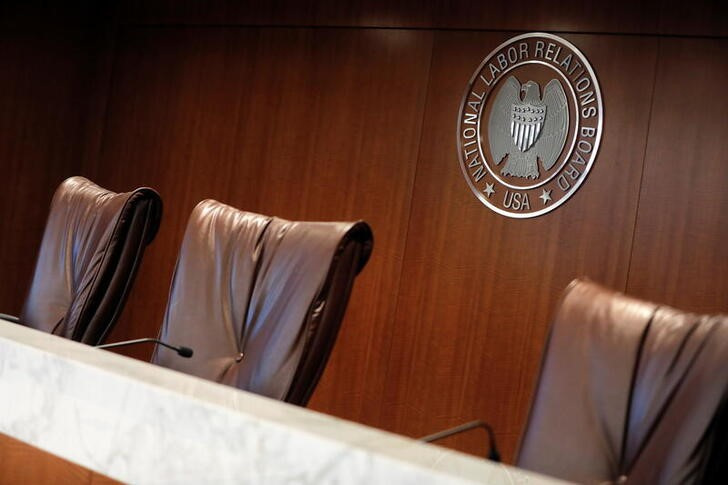By Lisa Baertlein, David Shepardson and Daniel Wiessner
LOS ANGELES/WASHINGTON (Reuters) – Employers negotiating labor contracts at U.S. East and Gulf Coast ports filed an unfair labor practice complaint against the union on Thursday. They said these leaders are refusing to resume talks ahead of the threatened October 1 strike.
The United States Maritime Alliance (USMX) said it filed the complaint with the National Labor Relations Board over the International Longshoremen’s Association’s repeated refusal to return to the bargaining table.
The six-year framework contract between USMX and the ILA expires on September 30 and the two sides appear to be at an impasse over wage issues.
The employers’ group said it had requested an immediate interim injunction – requiring the union to resume negotiations – so a deal could be finalized.
It is unusual, but not unheard of, for employers to file such complaints with the NLRB – an independent agency of the federal government that enforces U.S. labor laws, especially regarding collective bargaining and unfair labor practices.
In rare cases, the NLRB will go to court and ask for an injunction pending the outcome of an administrative case, but that can take weeks.
The ILA responded Thursday, calling the USMX a poor negotiating partner.
“If the ILA had not engaged in serious and productive negotiations, most of the local agreements would not have been reached over the past year,” the union said in a statement.
Earlier this week, ILA leader and chief negotiator Harold Daggett said he had rejected the USMX approaches.
“They call me several times a week to try to get the ILA to accept a low pay package,” Daggett said.
Sources close to the talks said the ILA was asking for a 77% pay increase – a percentage the union called excessive. Industry experts predict the increase will be higher than the 32% increase the West Coast Longshore Union achieved last year.
Companies that rely on maritime shipping are increasingly concerned that the ILA’s 45,000 members will strike and close 36 ports that handle more than half of America’s ocean trade in products such as bananas, meat, prescription drugs, auto parts, building materials and clothing.
If that happens, delays and costs could quickly pile up, endangering the U.S. economy in the weeks leading up to the U.S. presidential election, putting pressure on already taxed global shipping networks and ultimately pushing higher prices to consumers are imposed.
Economists at Oxford Economics estimate that the upcoming strike would reduce US gross domestic product (GDP) by $4.5 billion to $7.5 billion, or 0.1% annually, for each week the strike continues.
A strike has the potential to depress the October employment report at a time when the Federal Reserve is on high alert for signs of weakness in the labor market, she added.
The timing is politically sensitive as Democratic Vice President Kamala Harris faces former Republican President Donald Trump in the US presidential elections on November 5.
A White House official reiterated Thursday that President Joe Biden has no plans to invoke a federal law known as the Taft-Hartley Act to prevent a strike.

“We encourage all parties to come to the negotiating table and negotiate in good faith,” the official said.
“Senior officials from the White House, Department of Labor and Department of Transportation are in contact with the parties and delivering the message directly to them.”


